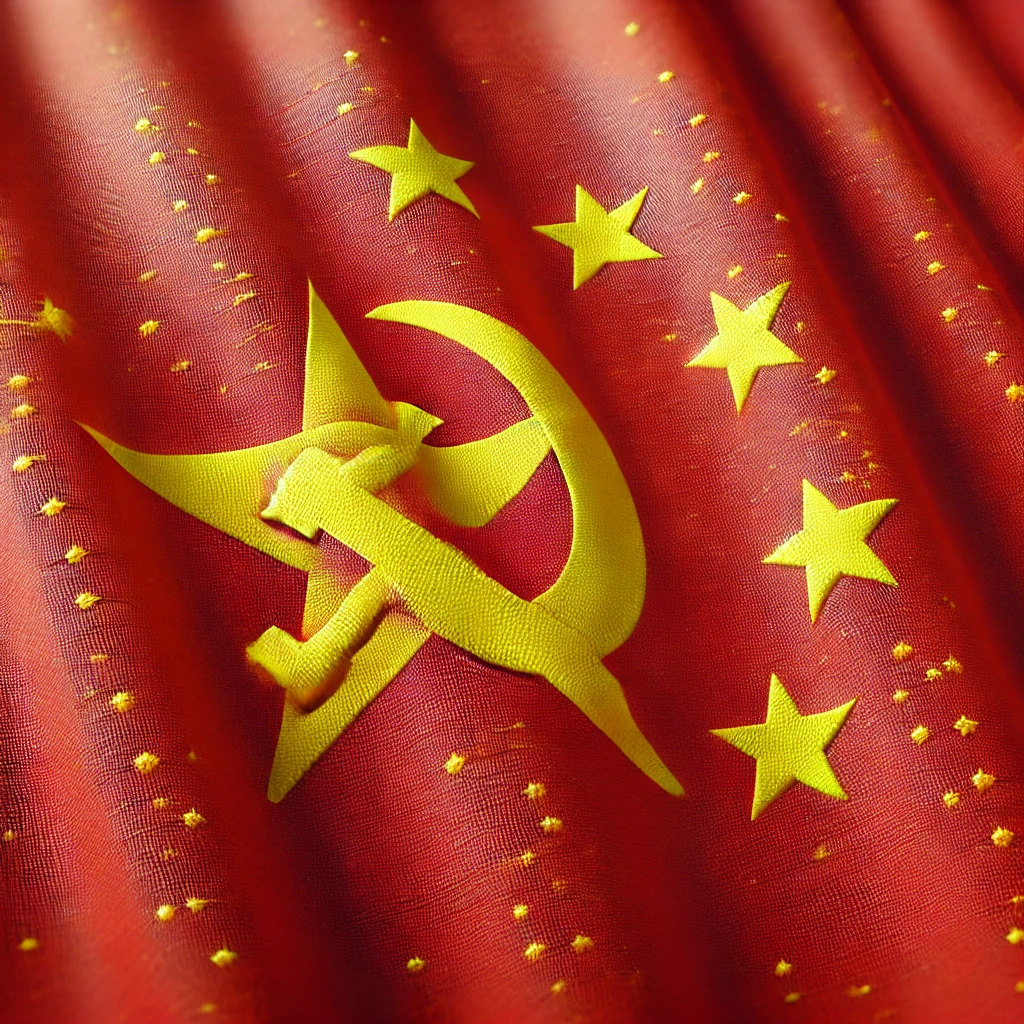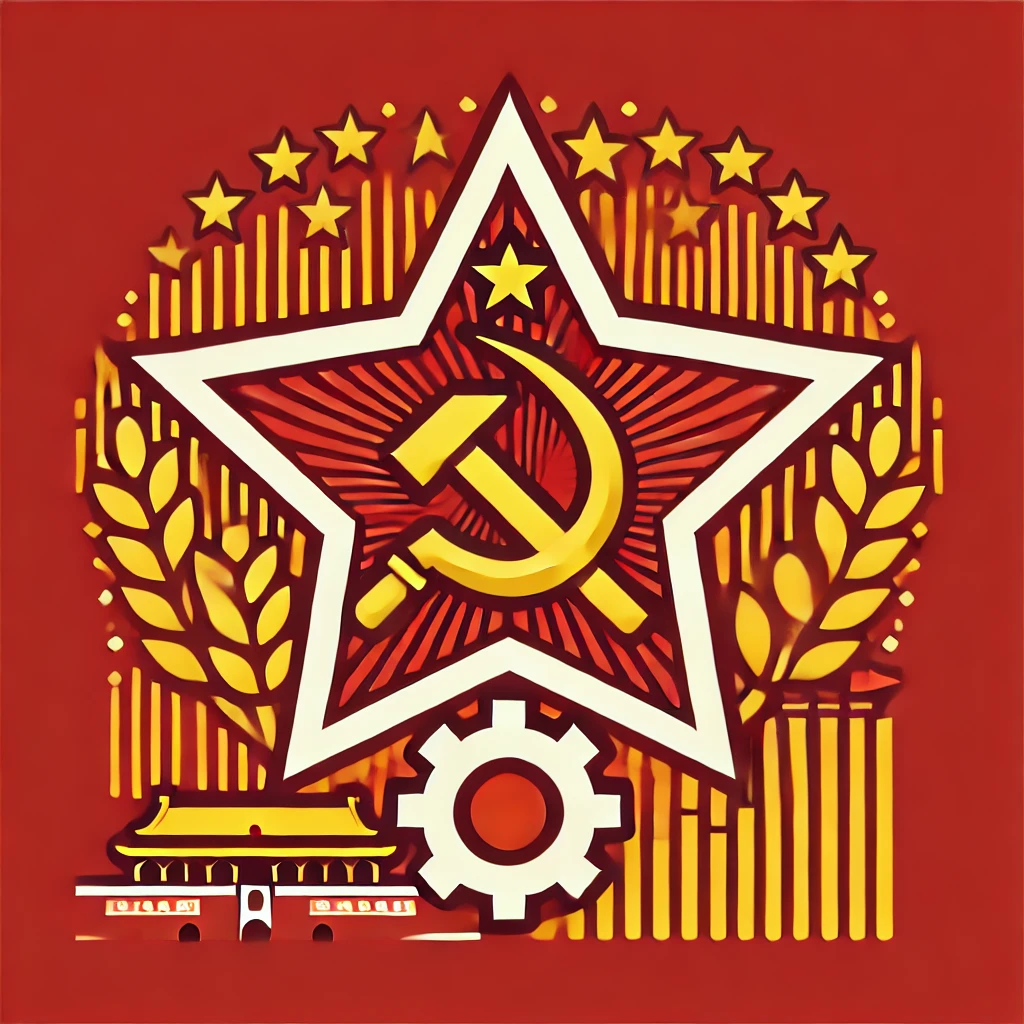On September 9th, 1976, China experienced the end of an era with the death of Mao Zedong, the Marxist revolutionary who had led the country through some of its most turbulent and transformative years. Mao, who had been the undisputed leader of the Chinese Communist Party (CCP) since the 1930s, left an indelible mark on China’s history, shaping the nation’s political landscape and its path toward modernization. His death marked a turning point in Chinese history, as the country began to navigate a new future without the man who had dominated its politics for decades.
Mao Zedong’s rise to power was rooted in his role as a revolutionary leader during the Chinese Civil War and the Long March (1934–35), a grueling retreat that solidified his position as the leader of the CCP. His ability to inspire loyalty and his strategic acumen during this period laid the foundation for his eventual dominance over the party and, later, the country. Mao’s leadership during the Long March turned him into a symbol of resilience and determination, qualities that would define his rule over China.
The Communist Takeover of China
In 1949, following years of civil war, Mao Zedong emerged victorious as the leader of the newly established People’s Republic of China (PRC). The communist takeover marked the end of centuries of imperial rule and the beginning of a new socialist era in China. Mao’s vision for China was rooted in Marxist-Leninist ideology, which he sought to adapt to the specific conditions of Chinese society. His leadership during this period was characterized by sweeping social, economic, and political changes aimed at transforming China into a modern socialist state.
One of Mao’s first major initiatives was the land reform campaign, which sought to redistribute land from wealthy landlords to the peasantry. This campaign was brutal and led to the deaths of hundreds of thousands of people, but it also fundamentally altered the social structure of rural China. Mao’s ability to mobilize the masses and implement radical policies became a hallmark of his leadership style.

The Great Leap Forward: Ambition and Catastrophe
In the late 1950s, Mao launched the Great Leap Forward, an ambitious campaign aimed at rapidly industrializing China and transforming it into a global economic power. The plan involved the collectivization of agriculture and the establishment of large-scale communal farms, as well as a focus on increasing steel production through small, backyard furnaces. Mao’s vision was to accelerate China’s economic development and catch up with Western industrial powers.
However, the Great Leap Forward proved to be a catastrophic failure. The focus on steel production led to widespread neglect of agriculture, resulting in a massive famine that claimed the lives of an estimated 15 to 45 million people. The campaign’s failure weakened Mao’s position within the CCP, and he was forced to step back from some of his leadership roles. Nonetheless, Mao’s ideological influence remained strong, and he continued to shape the direction of China’s development.
The Cultural Revolution: A Radical Reassertion of Power
In 1966, Mao Zedong launched the Cultural Revolution, a decade-long campaign aimed at purging China of what he perceived as bourgeois elements and restoring the revolutionary fervor of the communist movement. The Cultural Revolution was characterized by widespread persecution of intellectuals, officials, and anyone deemed counter-revolutionary. Millions of people were targeted, and Chinese society was thrown into chaos as Red Guards, mostly young students, carried out Mao’s directives with zeal.
The Cultural Revolution had a profound impact on China, leading to the destruction of cultural heritage, the disruption of education, and the persecution of millions of people. It also served as a means for Mao to reassert his control over the CCP and the country after the setbacks of the Great Leap Forward. While the Cultural Revolution further entrenched Mao’s authority, it also left deep scars on Chinese society, the effects of which are still felt today.
Mao’s Ideological Influence and Legacy
Mao Zedong’s influence extended beyond his political and economic policies; he also left a lasting ideological legacy. Maoism, a variant of Marxist-Leninist thought, emphasized the importance of the peasantry in the revolutionary struggle and the need for continuous revolution to prevent the emergence of a new ruling class. Mao’s emphasis on mass mobilization and his belief in the power of ideology to shape society were central to his approach to governance.
Mao’s ideology had a significant impact not only in China but also globally, inspiring revolutionary movements in Asia, Africa, and Latin America. His writings and speeches, particularly the Little Red Book, became influential texts for leftist movements worldwide. However, the practical application of Maoism in China led to significant human suffering, raising questions about the cost of his revolutionary vision.
The Death of Mao: A Nation in Transition
When Mao Zedong died on September 9th, 1976, China was at a crossroads. The country was still reeling from the effects of the Cultural Revolution, and there was uncertainty about the future direction of the CCP and the nation. Mao’s death left a power vacuum at the top of the Chinese government, and the country faced the challenge of transitioning from the era of a dominant, charismatic leader to a more collective leadership structure.
Mao’s designated successor, Hua Guofeng, initially attempted to maintain Mao’s policies, but it soon became clear that China needed a new direction. Within a few years, Deng Xiaoping emerged as the de facto leader of China, ushering in a period of economic reform and opening up to the outside world. Deng’s policies marked a significant departure from Mao’s emphasis on ideology, focusing instead on pragmatic economic development and modernization.

The Reassessment of Mao’s Legacy
In the years following Mao’s death, the Chinese Communist Party engaged in a careful reassessment of his legacy. While Mao was acknowledged as the founding father of the People’s Republic of China and credited with unifying the country, the party also recognized the severe consequences of his policies, particularly the Great Leap Forward and the Cultural Revolution. In a 1981 resolution, the CCP officially declared that Mao’s contributions were “70 percent right and 30 percent wrong,” a formulation that allowed the party to maintain its legitimacy while acknowledging the failures of the Maoist era.
Mao’s legacy remains complex and contested both in China and internationally. For many, he is a symbol of China’s struggle for independence and modernization, a leader who fought against foreign domination and sought to uplift the masses. For others, he is remembered as a tyrant whose policies caused immense suffering and set back China’s development. The debate over Mao’s legacy continues to shape Chinese politics and society today.
The Global Impact of Mao’s Rule
Mao Zedong’s impact on world history extends beyond China’s borders. His leadership during the Cold War made China a key player in global geopolitics, particularly in the context of Sino-Soviet relations and the eventual rapprochement with the United States. Mao’s decision to meet with U.S. President Richard Nixon in 1972 was a pivotal moment in the Cold War, leading to a realignment of global power dynamics and the eventual normalization of relations between China and the West.
Mao’s revolutionary ideology also influenced leftist movements around the world, particularly in the developing world, where his emphasis on the role of the peasantry in revolutionary struggle resonated with leaders seeking to challenge colonialism and imperialism. However, the failures and excesses of Mao’s policies also served as a cautionary tale, illustrating the dangers of ideological rigidity and the potential for revolutionary zeal to lead to human catastrophe.
The Enduring Significance of Mao Zedong’s Legacy
Mao Zedong’s death in 1976 marked the end of an era in Chinese history, but his legacy continues to loom large over China and the world. The political, social, and economic transformations that he initiated set the stage for China’s emergence as a global power in the 21st century. While the CCP has moved away from many of Mao’s policies, his influence remains evident in the party’s emphasis on strong centralized leadership and the importance of maintaining ideological control.
Mao’s legacy is also a reminder of the complexities of revolutionary leadership and the challenges of balancing idealism with pragmatism. As China continues to navigate its path forward, the lessons of the Maoist era serve as both a source of inspiration and a cautionary tale. Mao Zedong’s life and rule left an indelible mark on world history, shaping the trajectory of one of the most populous and influential nations on earth.
